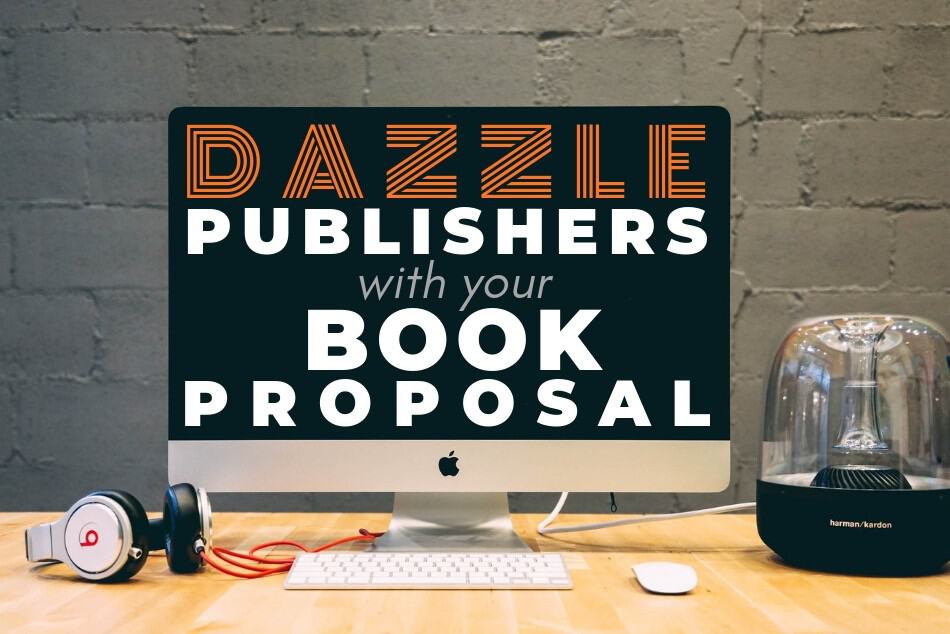A common question: Do I have to write the whole book to sell it to a publisher?
Fiction
For a novel, the answer is yes. It’s not enough to produce a few brilliantly written chapters, you need to deliver the whole magilla. Editors at publishing houses must know you have the writing chops to deliver a fully satisfying story—from the first page to the last.
Non-fiction
Selling a non-fiction project is another matter. A finished book may not be necessary to get a publishing contract. Creating an appealing book proposal, however, is a crucial part of a non-fiction author’s writing efforts. You are marketing both your writing and the salability of an idea.
Not only does an effective book proposal organize and define a book’s ideas and themes, it sells your book.
A well-structured proposal on a potentially commercial project is what secures non-fiction authors a fat contract.
Even if an editor likes your premise and subject matter, if the presentation is not meticulous at this early stage, it’s a turnoff. It goes without saying that a proposal must be free of spelling or grammar errors, so I will not mention it.
Introduction
Written in the style of the book as a whole, this section should impress potential publishers with your mad writing skills. The intro should be thorough and upbeat, encouraging readers to want to know more. This is an in-depth pitch: a comprehensive explanation of your book’s subject and why it’s timely.
Why are today’s readers interested in this topic?
Bear in mind that it may be more than a year before a contracted book will be published, so a sales pitch making a case for your book’s relevance must project forward.
Audience
Okay, your idea may be of general interest, but will bookbuyers purchase a book on this subject? Tell publishers of the teeming masses eagerly awaiting your book’s publication.
Using numbers and statistics is good. One in four Americans develop insomnia every year, and this book will help them get a good night’s sleep. Perhaps two million people access a website on this subject every day. The more you expand your potential audience, the better. Not only are you convincing an editor to buy a book, you are providing them with good arguments for their bosses.
Format
Before there’s a contract, there needs to be an agreement between author and publisher about how they want the finished product to look. Provide an approximate word count. Tell whether the book should have graphs or photos or other illustrations. Do you have those illustrations ready to go, or do they need to be created? Maybe you can describe why your book is well-suited to an audiobook or eBook format.
Competitive titles
Comp titles are the bane of authors’ existences, framing your unique project within the greater commercial universe.
Describe the competition, its success, and how your book compares. Comps should be titles from major publishing houses. Tell how your book is like recent bestsellers but also how it’s different—even better than what’s currently out there.
Why is your book the best read on this subject?
Here again, you are helping an acquiring editor make a case for your project within the publishing house.
Author bio
Your experience and depth of knowledge on the book’s subject is critically important to non-fiction publishers. If you have previous writing projects, describe their positive outcomes, such as impressive sales or good reviews.
Professional qualifications on the subject matter should be highlighted. Further, if you do public speaking, make media appearances, or have a prominent social media presence, don’t be shy describing all of this. Publishers like writers in the spotlight.
Promotion
Explain how your social media presence will raise this book’s profile. Blogging or connections to bloggers is one strategy. Do you have an author website? Are there other online resources that will aid the book’s coverage? Maybe you have a newsletter on the subject with a significant readership.
If you have a public profile related to the book’s subject matter, tell all.
If possible, provide numbers on how many people you can reach through various channels. Perhaps membership lists available from professional organizations can be used to aid your book’s discoverability.
Obviously, publishers love hearing you have a direct channel to sell books—whether it’s media appearances, workshops or conventions. The more outreach, the more appealing.
Include endorsements from prominent people or authorities on this topic. Or name people who have promised endorsements when the book is complete. Flaunt any connections.
Book outline
Construct an outline and describe each chapter in one-and-a-half to two pages. Like the earlier general overview, provide thematic points of each chapter. Include colorful examples or appealing anecdotes. Have one chapter’s end lead into the next.
Sample chapters
Two or three sample chapters should be included in a non-fiction book proposal. These are generally the first three chapters, but outstanding later chapters might be included if entirely riveting. Here your writing skills should shine brightly.
Why it matters
Demanding knowledge, technical skill and creative thinking, crafting an effective book proposal is no easy task, but well worth the effort. More than a commercial enterprise, it organizes content and helps define goals.
What part of the book proposal process presents the toughest challenge for you? Share with us on Facebook.





